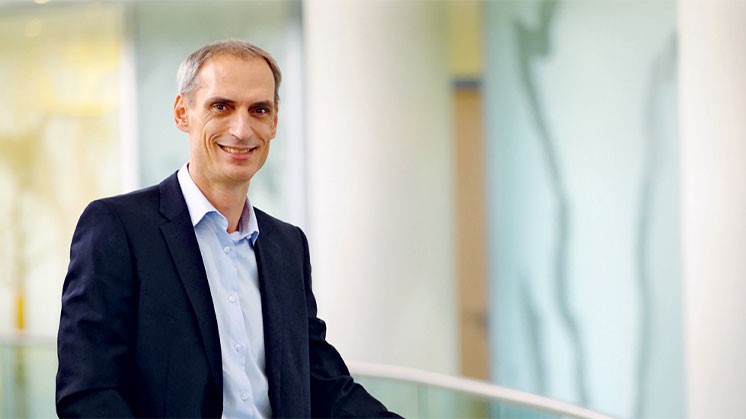CIEL Textile

Discussion with Eric Dorchies, the new Chief Operating Officer of CIEL Textile
CIEL Textile Limited has a new Chief Operating Officer ! After +/- 20 years in top leadership roles in CIEL Textile, and 14 years as Chief Executive Officer of the Woven Cluster of CIEL Textile (also known as Aquarelle Group), Eric Dorchies talks about his vision as the new COO of CIEL Textile Ltd, alongside his current role as Aquarelle group CEO.
How did you welcome your appointment as Chief Operating Officer of CIEL Textile Ltd (CTL) ? And what will be your main areas of focus?
Eric Dorchies: It is clearly a new journey which is opening up to me after 14 years as Aquarelle Group C.E.O. I have an overall knowledge of the 2 other CIEL Textile clusters, Floreal Knitwear and Tropic knits, and my first approach is to connect with the key leaders and their teams.
My main focus as the new COO will be on the CIEL Textile Group Front-End side: how to enhance CIEL Textile sales and marketing performances.
The clothing retail market in Europe and the USA is being hit by the digital revolution. The new winners are clearly the online retailers such as Amazon, and the traditional retailers, which account for most of our customer base, are on a back foot. We need to redefine our market approach of tomorrow and adjust our offer to the new requirements.
I am therefore launching a Chairman's Front end Excellence Award (CFEA) process with the objective to reward our best Front-End teams and foster best practices and cross-fertilization. The first Award ceremony is planned for October 2018 in Mauritius, while the period under consideration for performance assessment has already started.
In your view, what are the challenges CIEL Textile Ltd would have to face in the medium and long term?
Eric Dorchies: I believe that we have very talented teams, a very solid CIEL Textile management and a strong operational know-how.
Our business environment is and will remain volatile. We therefore need to focus on attracting and developing high talents who will win in our volatile environment. Harold Mayer, the CIEL Textile CEO is launching a leadership academy: the '361 Master in Operational Excellence' which will be a great tool to ensure that all our talents acquire, in a systematic way, our best management practices.
We are also enhancing all our Human Capital management processes to continuously improve the quality of our teams and ensure we are building the new skills required by the market changes. Our other major long term challenge will be to reshape our customer base.
CIEL Ltd has taken a greater share in CIEL Textile Limited. What will be the impact of this transaction on the cluster ?
Eric Dorchies: It, first and foremost, shows a very high commitment of CIEL Group top management and the board to CIEL Textile: this is highly valued by CIEL Textile leaders and their teams.
It gives CIEL Textile a very stable platform to articulate a medium to long term business strategy which is essential in our volatile environment.
You have been in the local textile industry for years. What is your vision for this industry as a whole?
Eric Dorchies: My views are that we are at the beginning of a major change in the way our industry operates.
When the textile and garment industries started to move away from Europe and the USA for lower cost countries 30 years ago, the overall supply chain was built up on the following assumption: retailers would know, 6 to 9 months in advance, what will sell in their stores and they will then look for the best sourcing deals.
Because of the growing consumption over the years, most of the garments bought long time in advance and then pushed to stores were purchased at full price by end consumers. This does not work anymore today and we are seeing retailers’ margins eaten up by sales to clear off their slow moving stocks.
What retailers need today is to ensure they always have best sellers products in their stores. The overall supply chain needs to completely reverse the way it works: from a “push to store” to a “pull from stores” approach.
It will mean much shorter lead-times, strong design capabilities, fast decision processes, digitalization for efficient data reading and analysis, and smaller quantities.
I see all those changes as a great opportunity for CIEL Textile: we have a clear vision of the way forward and we are building great talents who will shape our future business models.
Are there reforms that should be implemented to further strengthen this sector ?
Eric Dorchies: We have seen a lot of positive support from the Mauritian government to our industry recently. It is essential that the various incentives implemented are being maintained over a long period of time to allow all key players to adjust their business model to the new market requirements. We need the wages increase to be monitored cautiously since labor cost is one of the major costs in the garment industry.
More importantly, the dialogue between the government and the private sector should remain open and dynamic.




